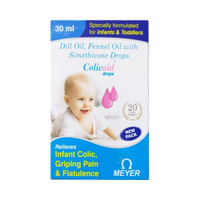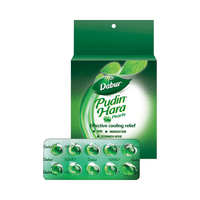Rs.69.10for 1 bottle(s) (30 ml Syrup each)
food interaction for Feronova Syrup
alcohol interaction for Feronova Syrup
pregnancy interaction for Feronova Syrup
lactation interaction for Feronova Syrup
food
alcohol
pregnancy
lactation
Feronova 500mg Syrup may be taken with or without food, but it is better to take it at a fixed time.
None
None
CAUTION
It is not known whether it is safe to consume alcohol with Feronova 500mg Syrup. Please consult your doctor.
CONSULT YOUR DOCTOR
Feronova 500mg Syrup is generally considered safe to use during pregnancy. Animal studies have shown low or no adverse effects to the developing baby; however, there are limited human studies.
SAFE IF PRESCRIBED
Feronova 500mg Syrup is safe to use during breastfeeding. Human studies suggest that the drug does not pass into the breastmilk in a significant amount and is not harmful to the baby.
There may be a possibility of diarrhea or rash in the baby.
There may be a possibility of diarrhea or rash in the baby.
SAFE IF PRESCRIBED
SALT INFORMATION FOR Feronova 500mg Syrup
Azithromycin(500mg)
Feronova syrup uses
{med_name} is used in the treatment of bacterial infections. It is used in bacterial infections of tonsils, sinus, ear, nose, throat, skin and soft tissues, and lungs (pneumonia).
How feronova syrup works
Feronova 500mg Syrup is an antibiotic. It works by preventing the synthesis of essential proteins required by bacteria to carry out vital functions. Thus, it stops the bacteria from growing and prevents the infection from spreading.
Common side effects of feronova syrup
Diarrhea, Nausea, Abdominal pain
SUBSTITUTES FOR Feronova Syrup
2 Substitutes
2 Substitutes
Sorted By
 Rs. 94.54pay 23% more per ml of Syrup
Rs. 94.54pay 23% more per ml of Syrup Rs. 24.15save 5% more per ml of Syrup
Rs. 24.15save 5% more per ml of Syrup
Expert advice FOR Feronova Syrup
- Do not skip any doses and finish the full course of treatment even if you feel better. Stopping it early may make the infection come back and be harder to treat.
- Do not take antacids 2 hours before or after taking Azithromycin.
- Stop taking Azithromycin and inform your doctor immediately if you develop an itchy rash, swelling of the face, throat, or tongue, or breathing difficulties while taking it.
Frequently asked questions FOR Feronova 500mg Syrup
Azithromycin
Q. Is Feronova 500mg Syrup safe?
Feronova 500mg Syrup is safe if used at prescribed doses for the prescribed duration as advised by your doctor.
Q. What if I don't get better?
You should inform your doctor if you do not notice any improvement in your symptoms after 3 days of taking Feronova 500mg Syrup. Also, if your symptoms get worse, inform your doctor immediately.
Q. How long does it take Feronova 500mg Syrup to work?
Feronova 500mg Syrup starts working within a few hours of taking it. You may notice an improvement in symptoms after a few days. Do not stop taking the medicine without completing the course mentioned by your doctor. Stopping the medicine without consulting your doctor may cause the infection to come back, which may be more difficult to treat.






















